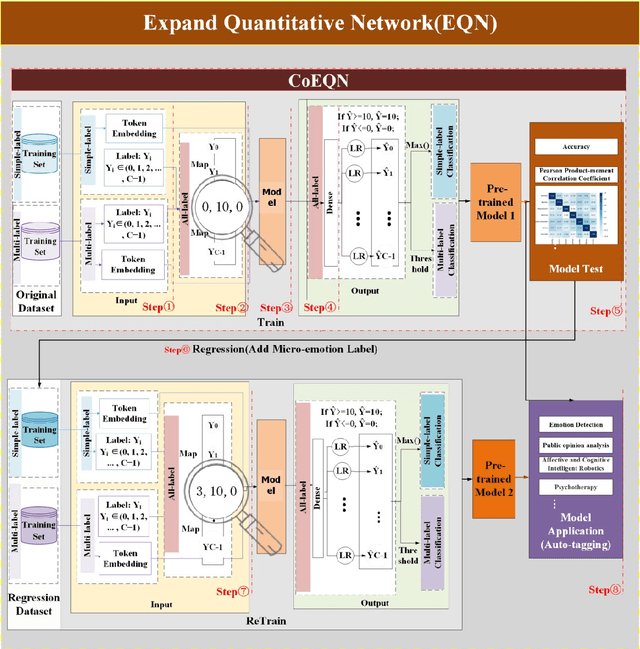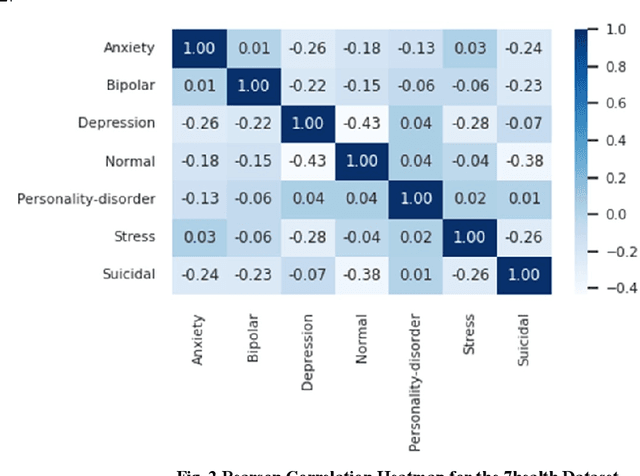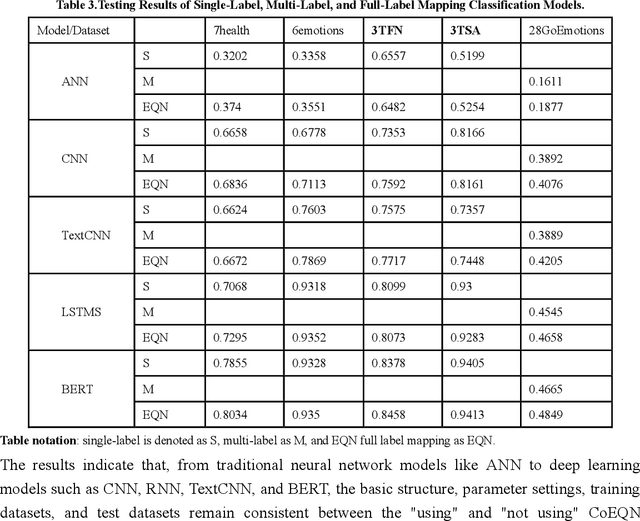Haofan Chen
A Chinese Multi-label Affective Computing Dataset Based on Social Media Network Users
Nov 13, 2024



Abstract:Emotion and personality are central elements in understanding human psychological states. Emotions reflect an individual subjective experiences, while personality reveals relatively stable behavioral and cognitive patterns. Existing affective computing datasets often annotate emotion and personality traits separately, lacking fine-grained labeling of micro-emotions and emotion intensity in both single-label and multi-label classifications. Chinese emotion datasets are extremely scarce, and datasets capturing Chinese user personality traits are even more limited. To address these gaps, this study collected data from the major social media platform Weibo, screening 11,338 valid users from over 50,000 individuals with diverse MBTI personality labels and acquiring 566,900 posts along with the user MBTI personality tags. Using the EQN method, we compiled a multi-label Chinese affective computing dataset that integrates the same user's personality traits with six emotions and micro-emotions, each annotated with intensity levels. Validation results across multiple NLP classification models demonstrate the dataset strong utility. This dataset is designed to advance machine recognition of complex human emotions and provide data support for research in psychology, education, marketing, finance, and politics.
Expansion Quantization Network: An Efficient Micro-emotion Annotation and Detection Framework
Nov 09, 2024



Abstract:Text emotion detection constitutes a crucial foundation for advancing artificial intelligence from basic comprehension to the exploration of emotional reasoning. Most existing emotion detection datasets rely on manual annotations, which are associated with high costs, substantial subjectivity, and severe label imbalances. This is particularly evident in the inadequate annotation of micro-emotions and the absence of emotional intensity representation, which fail to capture the rich emotions embedded in sentences and adversely affect the quality of downstream task completion. By proposing an all-labels and training-set label regression method, we map label values to energy intensity levels, thereby fully leveraging the learning capabilities of machine models and the interdependencies among labels to uncover multiple emotions within samples. This led to the establishment of the Emotion Quantization Network (EQN) framework for micro-emotion detection and annotation. Using five commonly employed sentiment datasets, we conducted comparative experiments with various models, validating the broad applicability of our framework within NLP machine learning models. Based on the EQN framework, emotion detection and annotation are conducted on the GoEmotions dataset. A comprehensive comparison with the results from Google literature demonstrates that the EQN framework possesses a high capability for automatic detection and annotation of micro-emotions. The EQN framework is the first to achieve automatic micro-emotion annotation with energy-level scores, providing strong support for further emotion detection analysis and the quantitative research of emotion computing.
 Add to Chrome
Add to Chrome Add to Firefox
Add to Firefox Add to Edge
Add to Edge